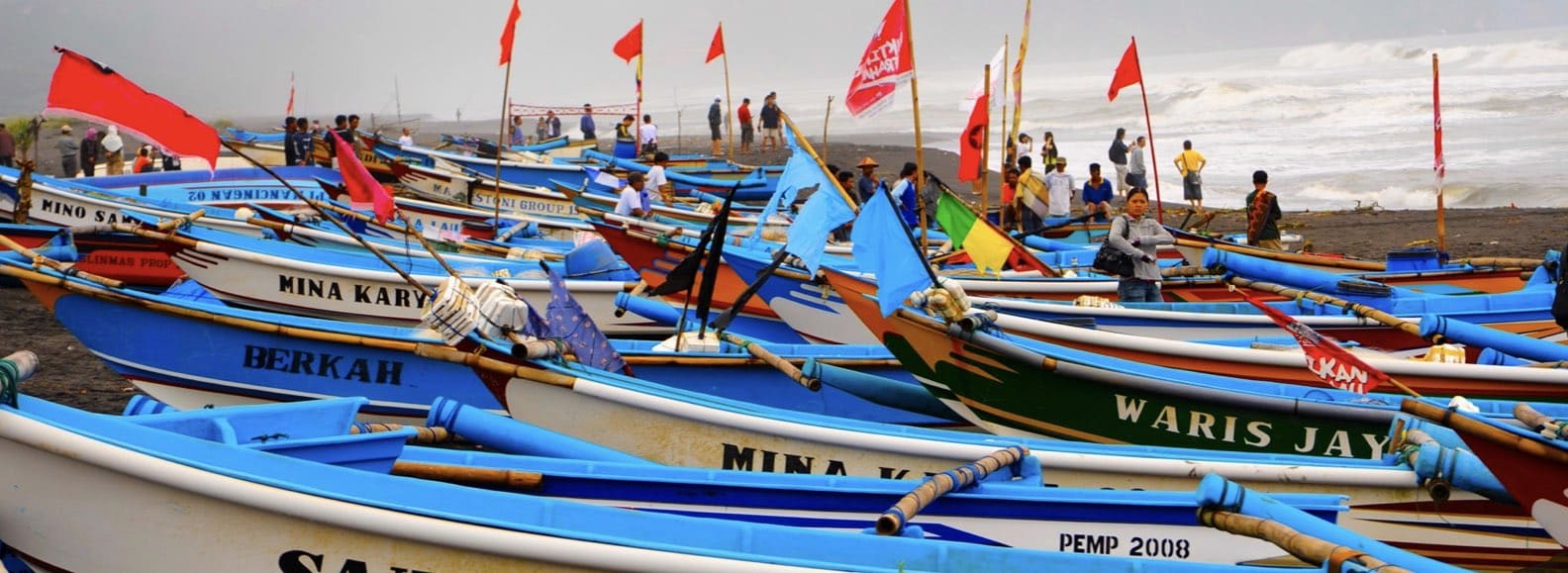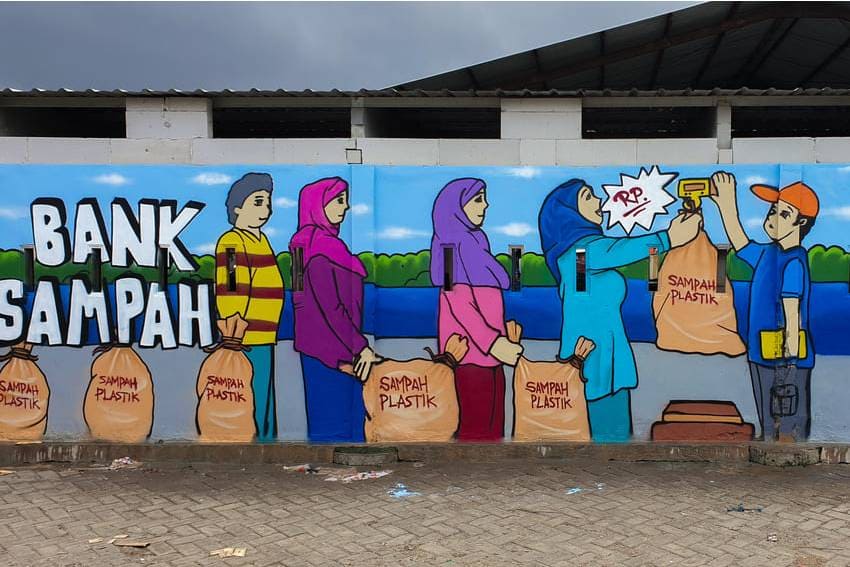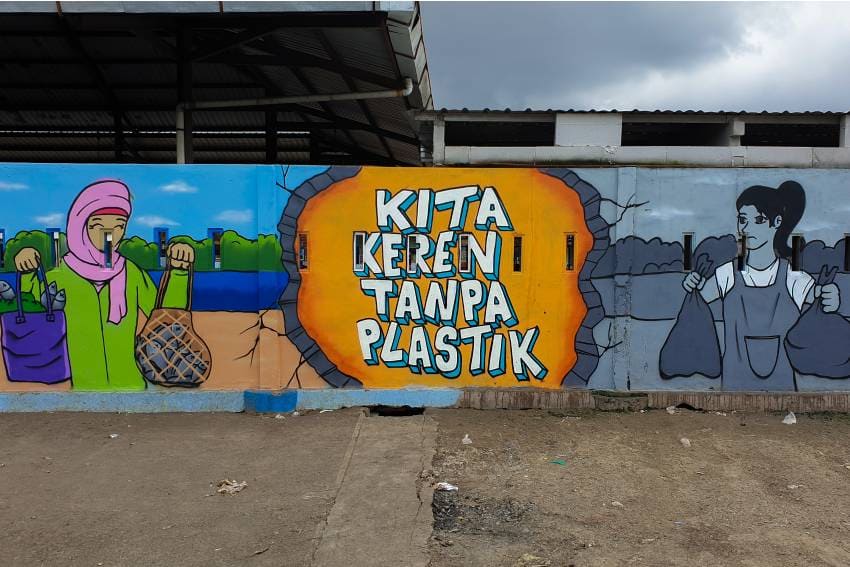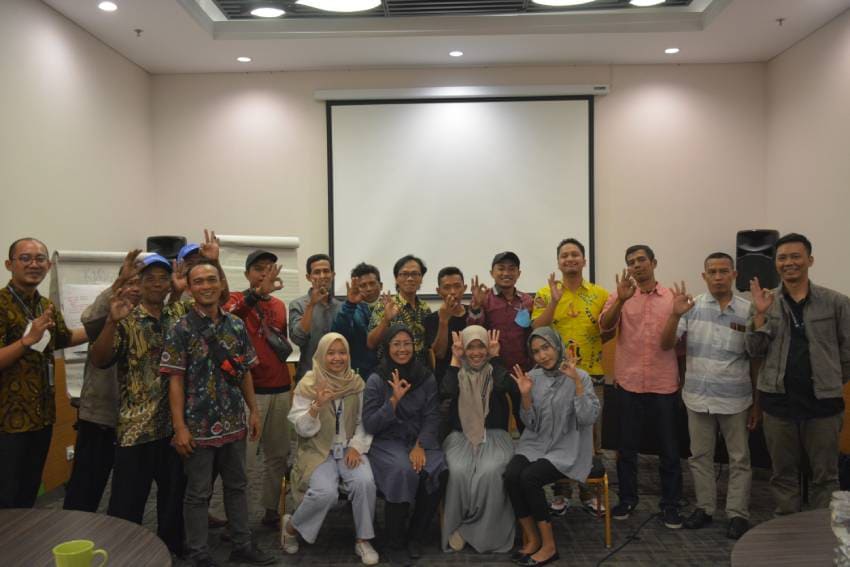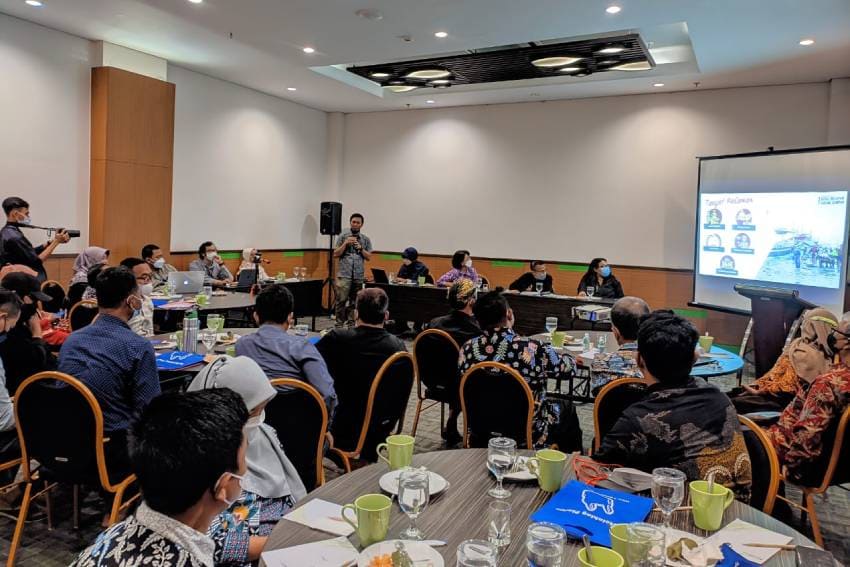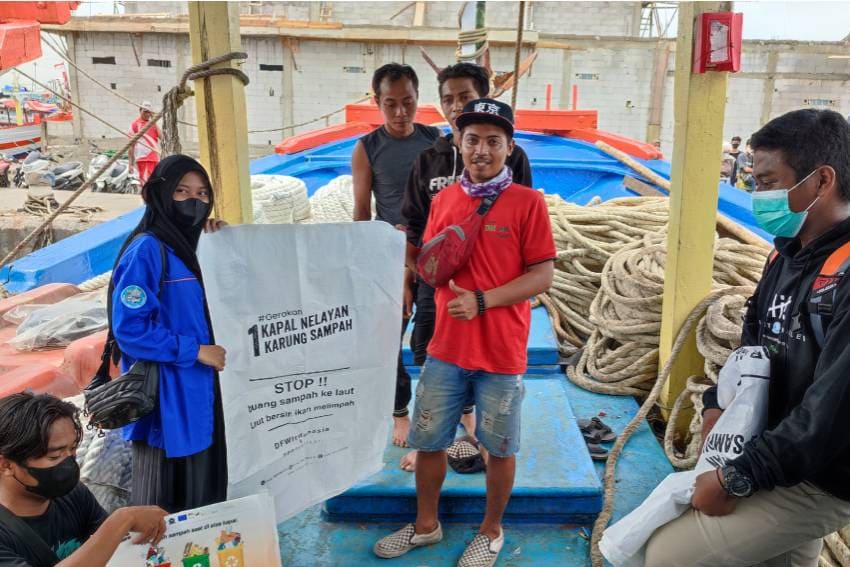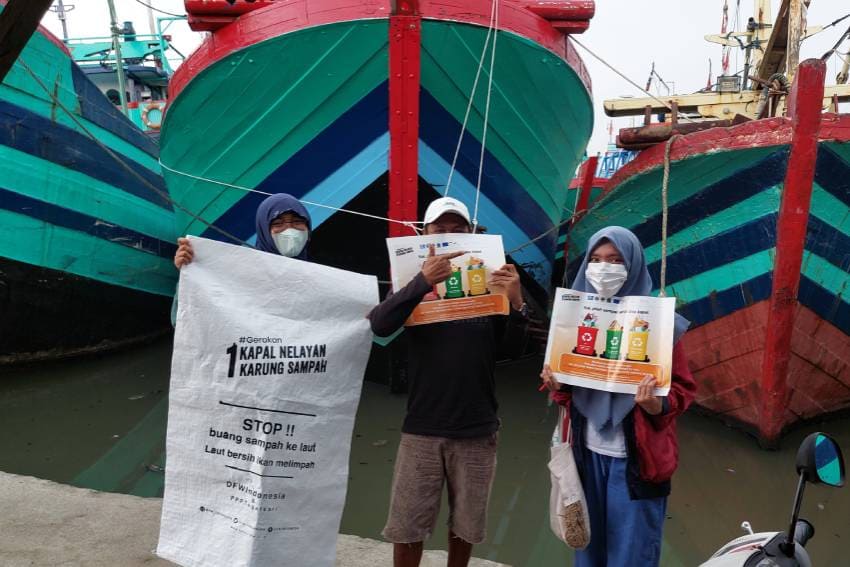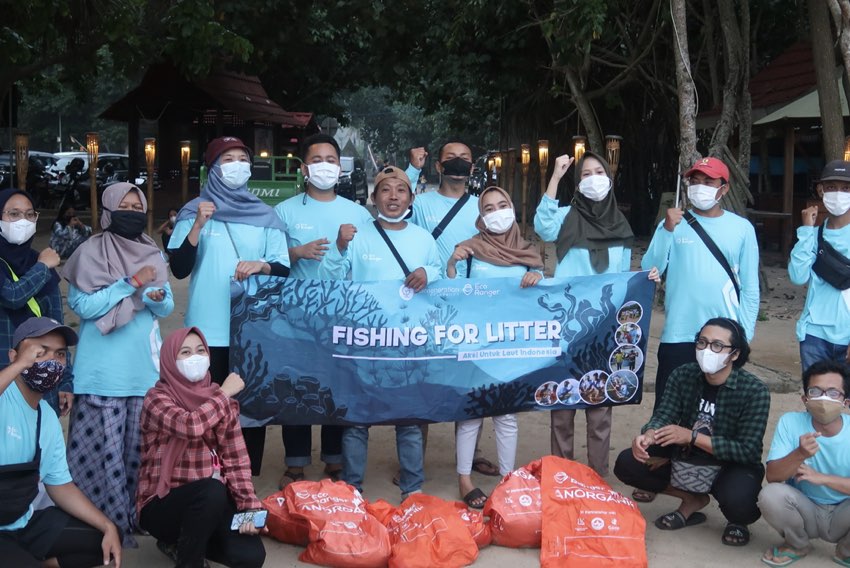Clean Fishing Ports
Loading and unloading, washing and cleaning, buying and selling. Tegalsari port is a hive of activity, and one of the busiest coastal fishing ports on Java Island. With more than 700 fishing vessels entering and leaving every day, work is intense – and it creates a lot of waste that can pollute the ports and the ocean.
Many do not realise the impact that marine litter has on the environment. This pilot project raised awareness about waste among fishermen and optimised Tegalsari port’s waste management. This means that waste is brought back from the boats to shore and properly handled on land. Additionally, we provided data and information regarding the management of plastic waste in fishing ports to governmental actors and supported them in improving regulations and procedures.
WHAT HAVE WE ACHIEVED IN 11 MONTHS?
1. Changes from the bottom-up
We met with nearly 50 owners of fishing boats that are based at Tegalsari fishing port. Together, we launched a movement called “one vessel – one garbage bag”. Through this initiative, the fishermen commit to bringing back at least one garbage sack full of their non-organic waste when they return from a trip. This has been included in a procedural document produced by the Fish Auction Authority and will be put into practice systematically.
Additionally, more than 300 volunteers responded to our call for a beach clean-up close to the Tegalsari fishing port, collecting around 300kg of waste. We used mural art to inform more people in Tegal city about what is happening in the port.
2. The trickle-down effect
The Indonesian Government is aware that the loading and unloading of fish at the ports is one of the main contributors to plastic littering along the coast. In response, a 2018 Presidential Regulation was introduced to improve waste management along the coast and at sea, and in 2021, the Ministry for Marine Affairs and Fisheries issued a regulation to prohibit littering from fishing vessels. So far, however, there is no holistic system to implement these regulations. Through our pilot project, we collected relevant data and compiled findings in order to help design processes and strategies. The Fish Auction Authority procedural document was based on the initiative “one vessel – one garbage bag”. It was shared with decision makers, and can serve as a reference for technical implementation in other fishing ports.
WHAT ARE OUR RECOMMENDATIONS FOR THE FUTURE?
- To properly treat waste in the fishing ports, it is vital to increase the awareness and know-how of the fishing port authorities. Currently, they often focus on the cleanliness of the fishing port itself, regardless of where the waste is discharged – whether into the water or as landfill.
- The capacities and facilities of the fishing ports also need to be enhanced, and partnerships with waste collectors in the city need to be built to channel the garbage from the port to the recyclers.
Implemented by:
Destructive Fishing Watch Indonesia (dfw.or.id) - https://dfw.or.id/
Documents

